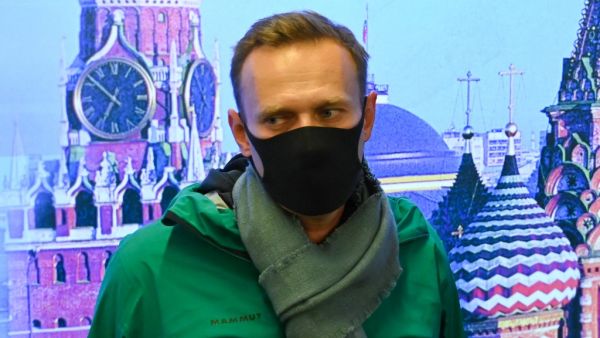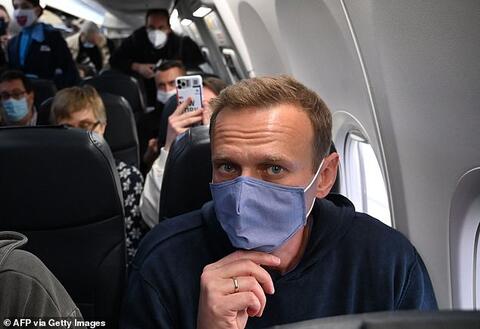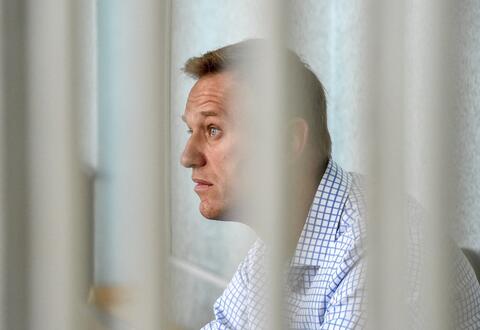Amid reports jailed opposition leader Alexei Navalny was close to death, the United States warned Russia on Sunday there will be consequences if he dies.
Navalny, Russian President Vladimir Putin's highest-profile critic, was arrested in January and sentence to 2 1/2 years in prison on charges of violating terms of an earlier suspended sentence.
Supporters of "imprisoned Russian opposition leader Alexei Navalny called..for massive protests in the heart of Moscow and St. Petersburg on Wednesday, saying Navalny’s health is deteriorating severely during a hunger strike" due to denial of medical care. https://t.co/Dpzt9MsTpE pic.twitter.com/XQ0rsqsr1W
— Kenneth Roth (@KenRoth) April 19, 2021
The 44-year-old politician was arrested on returning to Russia from a five-month stay in Germany where he received medical attention for nerve agent poisoning, an assassination attempt the United States, the European Union and other Western democracies have sanctioned Russia over though the Kremlin denies any involvement.
Navalny's health has been deteriorating since early this month as he has been on a hunger strike in demand of outside medical attention.
On Saturday, his doctor, Yaroslav Ashikhmin, said in a Facebook post that "our patient can die at any moment."
"A patient with this level of potassium should be observed in intensive care, as tala arrhythmia can develop at any moment," Ashikhmin wrote.
On Sunday, national security adviser Jake Sullivan told CNN that Russia is responsible for Navalny and it will be held accountable by the international community if Navalny dies.
"We have communicated that there will be consequences if Mr. Navalny dies," he said.
Ned Price, the U.S. State Department spokesman, also on Sunday reiterated the U.S.'s stance in a statement that Russian authorities are responsible for Navalny's well-being, "and we call on them to allow him access to necessary medical care immediately."
European Union on imprisoned Russian opposition leader Navalny's failing health:
— Kenneth Roth (@KenRoth) April 18, 2021
1. He shouldn't be in prison.
2. The Kremlin must allow him independent medical care.
3. Where's the investigation of his nerve agent poisoning?
4. His case is emblematic. https://t.co/Ql0M0obDeV pic.twitter.com/ZGj3Uu0Ihf
The European Council of the EU, which considers Navalny's charges politically motivated, said it will discuss the issue of his deteriorating health on Monday.
"We call on the Russian authorities to grant him immediate access to medical professionals he trusts," it said in a statement. "The Russian authorities are responsible for Mr. Navalny's safety and health in the penal colony, to which we hold them to account."
On Sunday, Navalny's allies announced rallies for Wednesday evening in cities across Russia.
"There are circumstances in which you need to act quickly, otherwise the irreparable will happen," they said on his website. "At such moments, decisions must be made instantly because decisions can change everything.
"Now is the moment."
The United States sanctioned seven government Russian officials in March for their role in Navalny's poisoning. In October, the EU sanctioned six.
The warning from the United States came days after President Joe Biden sanctioned nearly three dozen Russian individuals and entities for their attempts to interfere in the 2020 presidential election. In response, the Kremlin expelled 10 U.S. diplomats.
This article has been adapted from its original source.









